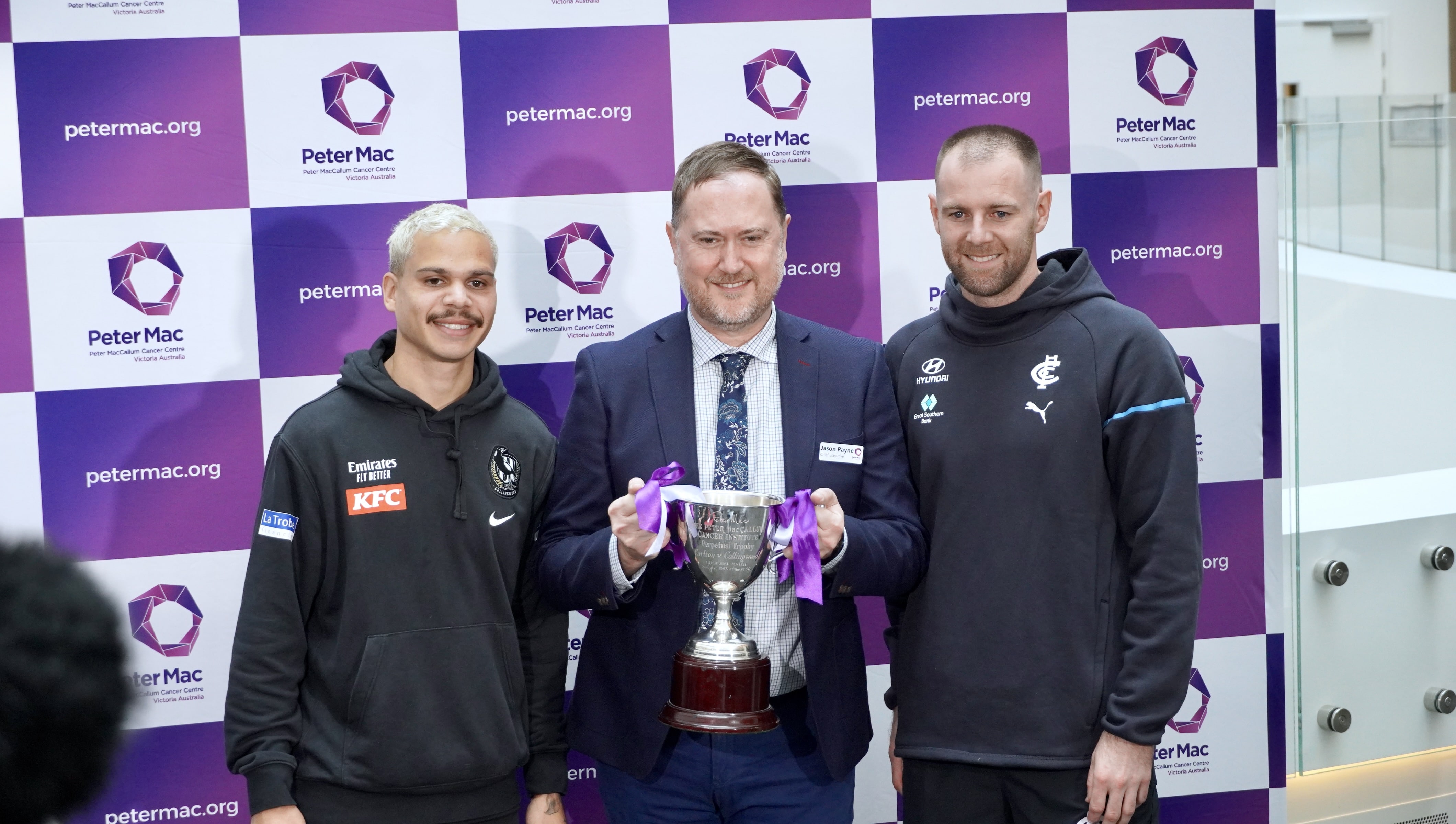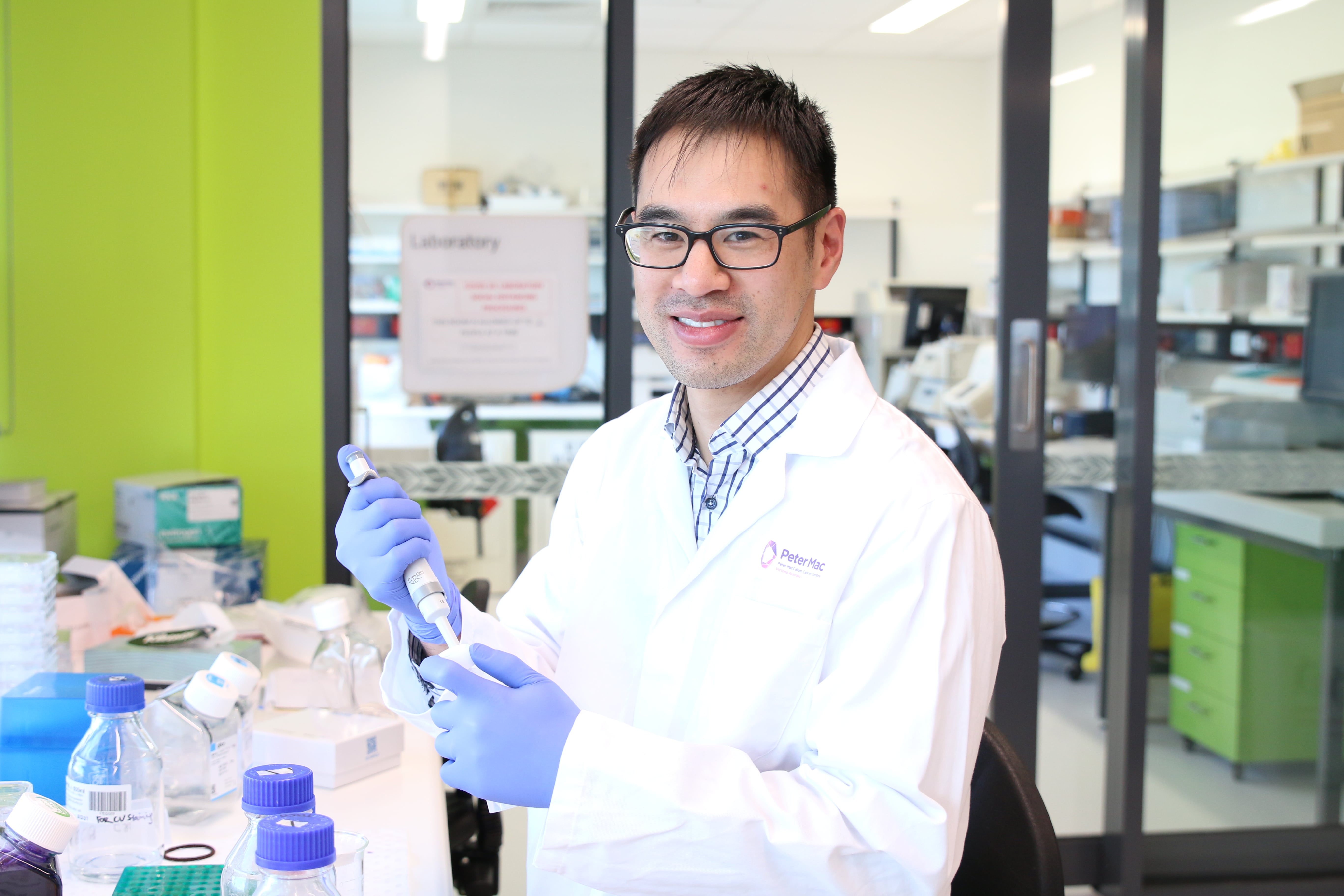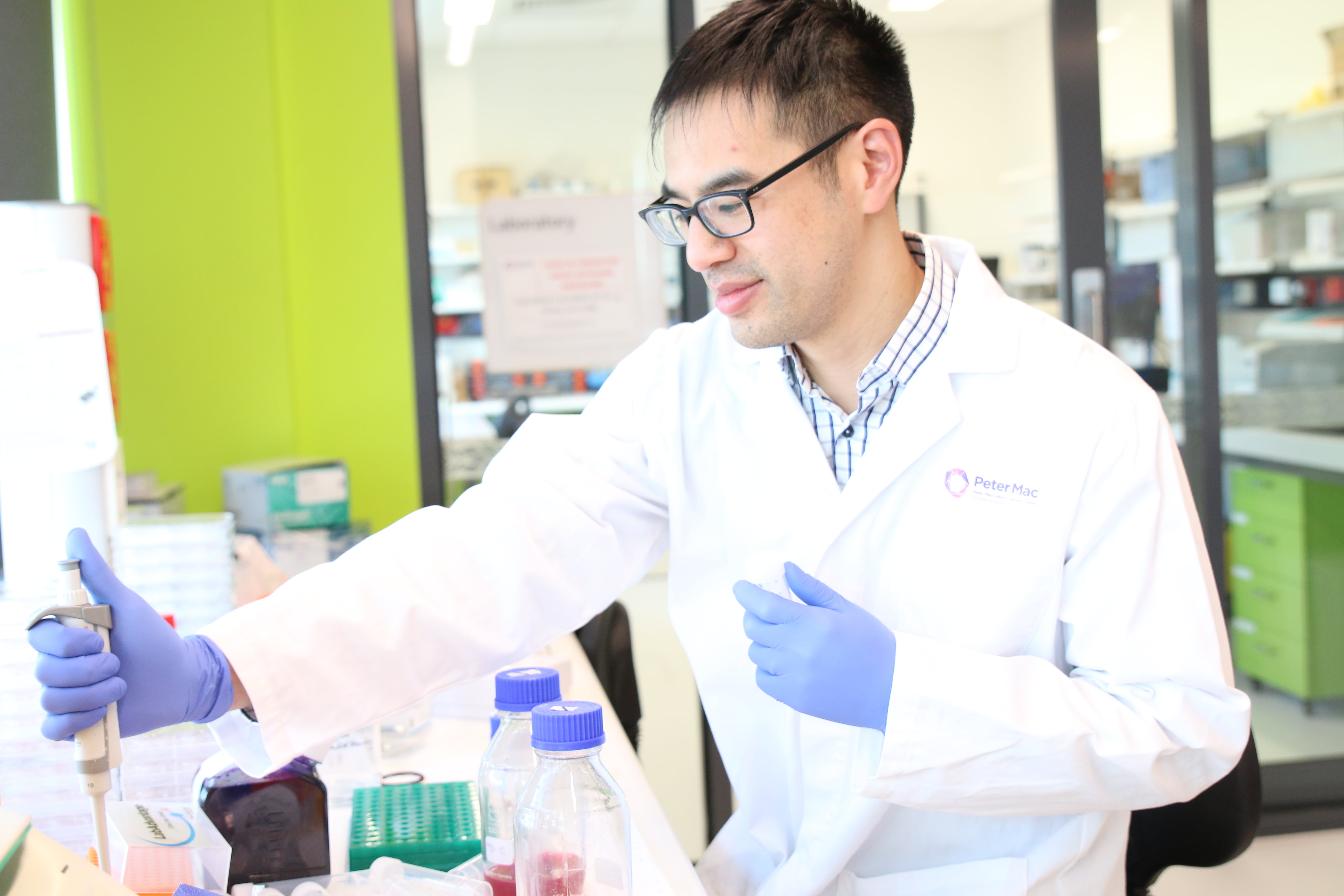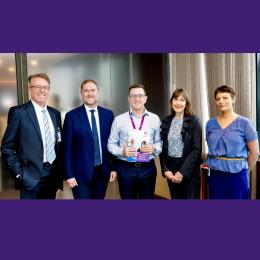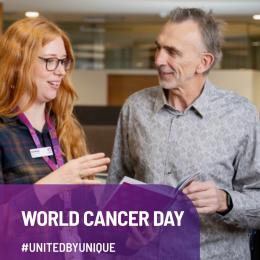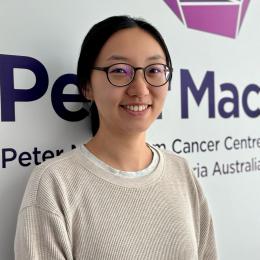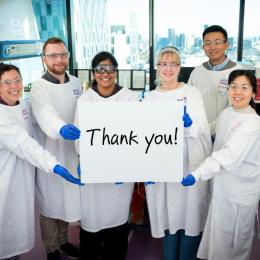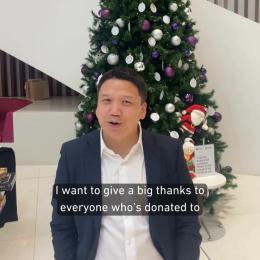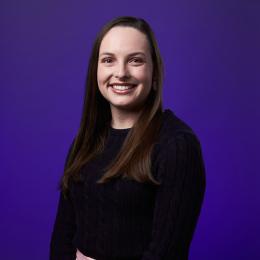Dr Luen's innovative research into breast cancer
20 January 2022
Dr Stephen Luen is discovering new ways to save lives from breast cancer.
His work is made possible by donations from our Discovery Partners – our incredibly committed monthly donors. Thank you.
Every day, approximately 55 people are diagnosed with breast cancer. There are many different subtypes of breast cancer, and because everyone’s genetic make-up is unique, this means that every person’s cancer is different.
For Dr Luen, his goal at Peter Mac is to find out how we can deliver more effective, and more personalised treatment plans for people living with cancer.
“I have a lot of goals that I want to achieve, and I believe I can achieve that through being a researcher at Peter Mac.”
Dr Luen is one of the many talented researchers working at Peter Mac today, and we are very happy to be sharing with you his story and the great work he’s doing in the fight against cancer.
Joining Peter Mac
After completing his physician’s exam, Dr Luen was keen to get started in the field of oncology.
As Australia’s only public hospital solely dedicated to cancer research, it was a natural choice for Dr Luen to come work and study at Peter Mac. He fondly recalls his first year at Peter Mac as an advanced trainee and the excitement of being able to study and work with some of the most innovative minds in cancer research.
“We're very lucky here at Peter Mac. The clinic where we are actively seeing patients is only an elevator ride away from the research laboratory. There are only a limited number of places in the world where this occurs. And it cannot be overstated how crucial this is to enabling good research.”
One of the unique features of Peter Mac is our ‘laboratory bench to patient bedside’ approach - meaning that our researchers are able to take research results from the laboratory and start rapidly translating them into patient outcomes.
Not only is this beneficial for patients, but it also accelerates work like Dr Luen’s so that researchers can discover new treatments and cures more quickly.
“What really excites me is improvement in patient outcomes. As a medical oncologist who gets to run research and trials, you can actually see that in front of your eyes. You see your patients improve and you see their scans, and you share that journey with them. And for me, that's very exciting."
Today, Dr Luen is currently focused on better understanding the biology of breast cancer, and how it responds to treatment.
He firmly believes that by increasing our knowledge of which patient’s cancer is likely to be resistant to treatment, our researchers will be able to better develop individualised treatment plans to improve the health outcomes of people with cancer.
The past and present of immunotherapy
According to Dr Luen, while there have been many great discoveries in the field of immunotherapy treatment in recent years, there is still a lot more work to be done.
“Previously we would take triple-negative breast cancer as a whole, and we would treat them all the same. What we're trying to do now in the research sphere is trying to maximise that benefit of immunotherapy.”
“What we've learnt over the years is that the immune system is very important, but only in selected patients. We really need to understand which patients will benefit more from immunotherapy and which ones don’t, it’s really important to recognise that.
In other words, what is it that makes some cancers resistant to treatment? And what is it that makes them more aggressive? I believe that if we can understand that better, we will get closer to coming up with treatment strategies that will improve patient outcomes.”
While research and clinical trials have proven the effectiveness of immunotherapy treatments in cancers like lung and skin cancer, there hasn't been as much luck in how it can be applied to breast cancers - something that Dr Luen is eager to change with his research.
When he first began his research, people diagnosed with triple-negative breast cancer were typically treated with the same standard approach of chemotherapy and surgery. The challenge with this approach is that not everyone will respond in the same way, and some will unfortunately experience long-lasting side effects from their treatment.
What Dr Luen is trying to discover is how immunotherapy can be used to help develop better and kinder treatments for patients with breast cancer.
“Previously we would take triple-negative breast cancer as a whole, and we would treat them all the same. What we're trying to do now in the research sphere is trying to maximise that benefit of immunotherapy.”
Developing personalised and tailored treatments
Another aspect of Dr Luen’s research is that by looking more closely at the differences between people’s tumours, he’ll be able to understand what treatment options will work best and tailor their treatment to the individual.
“We need to move away from the ‘one size fits all’ approach by trying to put together the pieces that are going to allow us to understand why patients should be treated differently based on their tumour profiles.
Just as an example, what we try to do now is take patients with tumours and look at the DNA, and look at the gene expression to better understand the biology and provide a unique personalised treatment plan for that.”
With so many different subtypes, breast cancers can be tricky because each subtype often requires its own method of treatment. This can be a complex challenge for doctors, especially as there’s currently no set method to tell which treatment strategy is working until a patient is already in the middle of it.
Fortunately, this may no longer need to be the case. One of the ways Dr Luen is tackling the issue is by taking regular biopsies of different types of breast cancer tumours and examining them in the clinic before prescribing treatment.
In doing so, Dr Luen and his team can get a better understanding of the biology of each subtype of breast cancer, and what treatment strategies will be the most beneficial for each patient.
For Dr Luen, not only does this present a great opportunity to improve the health outcomes of all people diagnosed with breast cancer, but he believes this kind of innovative research only comes around once every generation.
“This represents a change. It's really rare in oncology when you can come across a treatment that can actually alter the biological outcome of the cancer. I think this is a really good example of where there's potential to really change the biology of cancer, a chance that only comes around every two decades or so.”
There’s still a great deal of work to be done and many more avenues to explore, but Dr Luen is excited to be conducting this research at Peter Mac, and he has high hopes for what his research will mean for bringing about a cancer-free future.
“You can't do everything by yourself. Especially things like clinical research. So there's a real team around you and it has to be that way because you simply can't do it alone.
I'm really lucky that we can bounce ideas off each other. And ultimately when you're doing research, you really need to have the experts involved.”
Thank you for your support
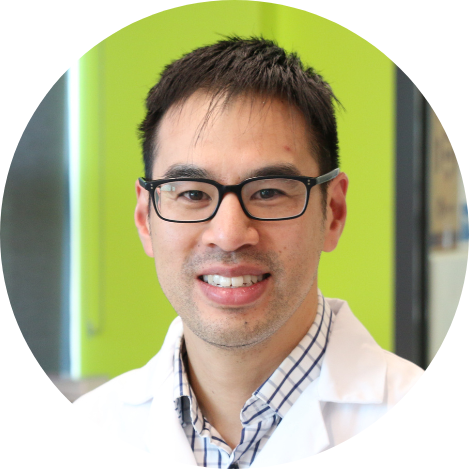
Dr Luen is just one of the many researchers at Peter Mac whose work is made possible through support like yours, something he is extremely grateful for.
Read Dr Luen's letter to Peter Mac supporters below:
I believe that cancer research is crucial to improving health outcomes for our patients.
Here at Peter Mac, I am very lucky to work alongside world-class cancer researchers who are leaders in their respective fields. While we all have distinct research interests, we are able to build off each other’s work in a highly collaborative way. This allows us to further our understanding of the underlying biology of cancer. Your support really drives this effort.
We all know someone who has had cancer and we all want to see a world where everyone who is diagnosed with cancer survives.
The support you give enables researchers like me to investigate new ways to treat and ultimately cure cancers. Your investment in cancer research at Peter Mac helps us to further our knowledge and supports collaboration across all areas of cancer research.
Thank you for sharing our commitment to giving all people with cancer the best chance of a cure. Together we are one step closer to a cancer-free future.
@Follow us on Instagram (@SupportPeterMac)

